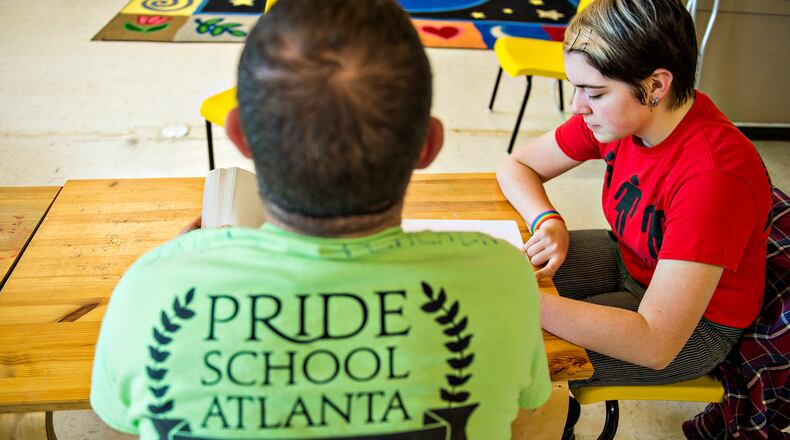When I read an AJC story about Pride School, a private school for LGBT students and teachers set to open in Atlanta this fall, my first thought was: Good for them.
My second thought was: We’re about to see which constituency Georgia’s Democrats really favor.
Pride School, and the students it serves and teachers it employs, is a perfect example of why Georgia needs more school-choice measures for more families in more circumstances. There have been awful stories about the treatment of lesbian, gay, bisexual and transgender youth in public schools. While we certainly shouldn’t seek to remove them from traditional public schools, it’s perfectly understandable if some of these students and their families think changing schools would be a better option.
Undoubtedly, though, many of these families can't afford the expected annual tuition of $13,000. School-choice measures, such as Education Savings Accounts , could go a long way toward helping them put their students in a better learning environment.
But while Georgia's Democrats have championed LGBT rights, the majority of them also have stood against expansions of school choice. Why? Because, even though many other longtime Democratic supporters would benefit from having more choices, the various teacher lobbies and education interest groups that contribute to their campaigns demand their fealty to the same old model of public education .
Some school-choice opponents have criticized ESAs and an existing program, Georgia’s tax-credit scholarships, on the grounds that some schools where students go, or could go, don’t allow students who are gay. But what if these programs also helped gay students attend schools where they’re more accepted?
As it happens, many of the students who already use Georgia’s school-choice programs can sympathize, in a way, with the young people who might want to attend Pride School.
A couple of years ago, the state's largest tax-credit scholarship program, Georgia GOAL, surveyed 754 of its recipient parents . It asked why they sought these scholarships to send their children to private schools. When asked for the top three reasons, parents' most common responses were "better student discipline" (40.3 percent), "improved student safety" (37.7 percent) and "better learning environment" (31.6 percent). All are reasons a student might be interested in a place like Pride School.
Even schools that do a good overall job academically can be the wrong fit for specific students, for a variety of reasons. And it should hardly come as a surprise that students who don’t feel comfortable in a school may not perform well in it even if their peers do.
Now, would it be ideal if these problems for LGBT youth didn’t exist in public schools? Of course. Should we tolerate their continued existence? Not at all.
But should we also trap these children in their current schools until the problems are solved? Like children in chronically failing schools, they don’t have the luxury of putting their education on hold until that happens.
So, just one more question: Democrats, which group of constituents is it going to be?
About the Author
The Latest
Featured


